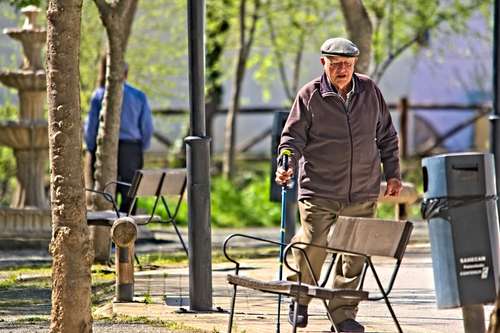Recent findings suggest that engaging in physical activity during key moments in your life could significantly lower your chance of developing dementia. Have you ever wondered how a simple walk or light exercise might protect your brain over time? The Framingham Heart Study provides some food for thought and encourages more of us to adopt a more active lifestyle. It's not only about staying fit for the body, but also about keeping our minds sharp. This research reveals the intriguing link between physical activity across different life stages and improved cognitive health outcomes later on.
Scientists have always been fascinated by the ways we can prevent the wear and tear on our brains as we age. They say that staying active might just be the secret ingredient to preserving memory and mental fitness. Imagine your brain as a finely tuned machine that needs regular maintenance—a little movement now and then goes a long way. Some studies even liken these benefits to adding an extra layer of protection to your neural wiring!
So, if you've been putting off that daily jog or voluntary stroll in the park, now might be the perfect time to reconsider. The concept of dementia prevention isn't just for seniors; it's a lifelong journey. By incorporating regular exercise and physical activity at different stages, we're not just reducing dementia risk, but investing in our long-term brain health. Let’s take a closer look at how midlife and late-life physical activity play unique roles in this story.
The Role of Midlife Exercise in Dementia Prevention
Midlife is a turning point that can shape your future cognitive health. The idea here is simple: the earlier you begin an active lifestyle, the better your chances of lowering dementia risk later on. In this section, we explore how physical activity during your prime can set the stage for a healthier brain in your golden years.
Many research studies have pointed out that being physically active in midlife can lead to improved blood flow to the brain and the formation of new neural connections. Regular exercise acts like a natural defense mechanism, bolstering brain health from within. When you're actively involved in sports, gym routines, or even brisk walking, you're not just burning calories—you’re literally locking in benefits for your mind.
Imagine your brain as a garden that needs to be watered regularly. In midlife, exercising is like giving it the essential water and nutrients to flourish. Not only does this curb inflammation, but it also supports the cognitive process, ensuring that neurons work together smoothly. A friendly reminder: it's never too early to start making this investment in your future!
The connection between physical activity and brain health extends beyond just the immediate benefits. Researchers believe that maintaining mental fitness today could translate into lower dementia risk years down the road. After all, who wouldn’t want to enjoy the confidence of knowing that your midlife choices could potentially guard your memory against the ravages of time?
The Impact of Late-Life Physical Activity on Reducing Dementia Risk
Physical activity isn’t just beneficial for those in the prime of their life. Late-life exercise also plays a crucial role in dementia prevention. This segment highlights how incorporating regular exercise later in life can contribute significantly to cognitive health.
Engaging in regular physical activity in your later years can seem like a daunting task for some. However, even modest activities like stretching, leisurely walks, or gentle yoga can dramatically improve brain health. The benefits of an active lifestyle in later life are well-supported by research. It’s like giving your brain a tune-up to keep it running efficiently, even when the road becomes bumpier.
Older adults often feel that their physical capabilities have diminished, but there’s good news: exercise and dementia research has shown that it’s never too late to start. Regular physical engagement can help in managing stress, improving blood circulation, and ultimately, reducing the risk of cognitive decline. Many seniors have discovered that a daily routine of simple exercises makes them feel rejuvenated and more mentally alert.
It can be incredibly empowering to know that each step you take, no matter how small, contributes to a lower dementia risk. For instance, participating in community-led senior exercise programs has been linked to improved social connections and mental well-being—further boosting cognitive health. The idea is to keep your body in motion, so your mind remains as agile as possible!
Integrating Active Lifestyles for Healthy Aging
We can’t talk about dementia prevention without acknowledging the overall benefits of an active lifestyle. This section brings together the insights from midlife and late-life exercises and shows how both contribute to maintaining cognitive health. Sometimes, the difference between a routine and a genuine joy is the active choices we make every day.
Regular physical activity is more than just a method for reducing dementia risk—it’s a lifestyle change that supports mental fitness and overall well-being. Incorporating both aerobic exercises and strength training into your daily regimen can foster a balanced approach towards healthy aging. Think of your body as a multifaceted engine where every component needs regular care.
When you stay active, you're not just preserving your muscle memory but also nurturing your brain. Whether you are in the middle of a busy work schedule or enjoying the quieter moments of retirement, an active lifestyle will continue rewarding you with improved cognitive function and better overall health. The emphasis here is on consistency and joy in movement rather than intensity alone.
What’s really compelling is the notion that physical activity, regardless of your current age, is a powerful tool against the threat of dementia. By prioritizing movement in both midlife and late life, you’re not just addressing the physical aspects of aging but also actively defending your cognitive future. This holistic approach to health is a win-win for both your body and your mind.
In essence, the research makes a strong case: whether you’re tackling your mid-career stress or enjoying your retirement years, every bit of movement counts. A commitment to physical activity can transform not just your physical well-being, but also your mental agility, creating a stronger, more resilient you!
Ultimately, physical activity is a cornerstone of both dementia prevention and healthy aging. By understanding its dual benefits at these critical life stages, you can make better choices towards a happier and healthier future. So take a moment, lace up those sneakers, and consider how a simple, consistent exercise routine might safeguard your brain against time. Your future self will thank you!




